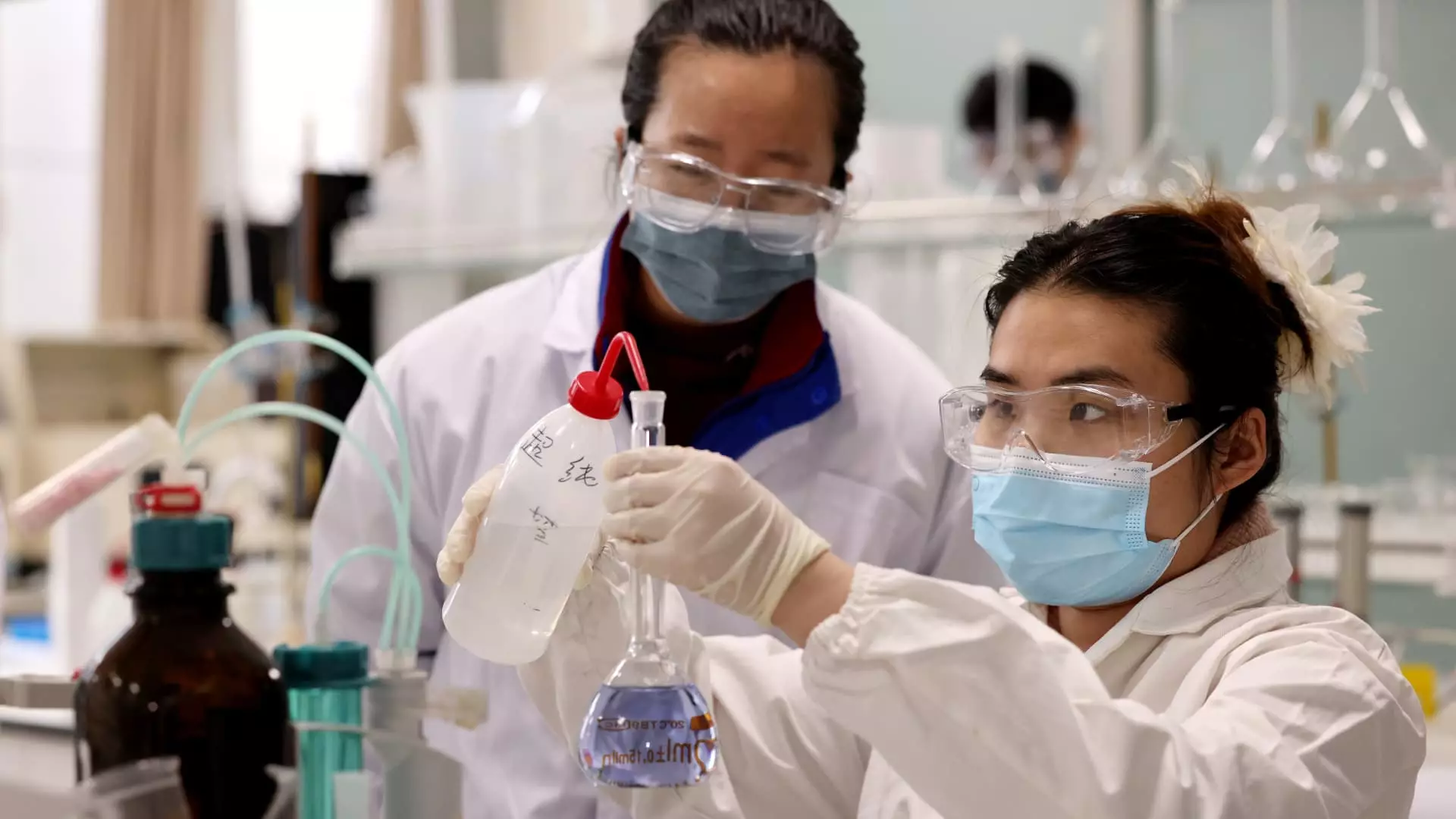In a world increasingly driven by technological innovation, the competition between nations has never been more pronounced, particularly in the realm of biotechnology. Recent studies, notably from the Harvard Belfer Center, reveal that China is rapidly gaining ground in this critical field, suggesting that it could soon usurp the United States’ long-standing lead in biotech, which holds implications for global health and agricultural sustainability.
While attention often centers on artificial intelligence, innovations in biotechnology are pivotal to the enhancement of health outcomes and food security worldwide. This past week’s report indicated that biotechnology is a sector where “the narrow U.S.-China gap suggests future developments could quickly shift the global balance of power.” This assessment underscores a pressing issue: the strategies employed by each nation will shape not only their own health systems but also the geopolitical landscape.
Speed of Innovation: A Key Factor
China’s rapid ascension in the biotech sector can be traced back to concerted state-led efforts and a flexible regulatory environment, which have proved advantageous in accelerating research and development. Experts highlight that the U.S. often faces protracted approval processes and stringent regulations, potentially stifling innovation. As China capitalizes on its robust manufacturing capabilities, it is positioned to streamline the development of groundbreaking therapies, especially in pharmaceuticals, where it has begun drawing significant investment from Western pharmaceutical companies eager to tap into the potential of China-developed medications.
The situation has been compounded by the Covid-19 pandemic, which exposed vulnerabilities within healthcare systems globally, thus bringing a renewed focus on the need for rapid biotech advancements. As an example, AstraZeneca’s recent commitment of $2.5 billion to a R&D center in Beijing exemplifies the recognition that China is becoming an increasingly important player in meeting global pharmaceutical demands.
The Human Capital Advantage
Another element that cannot be overlooked is China’s unparalleled pool of human talent in the sciences. With an increasing number of research institutions and a burgeoning cadre of graduates in STEM fields, China is poised not just to develop cutting-edge biotechnologies but to scale them faster than the U.S. can manage. This advantage creates a talent vortex, drawing in more minds to continue pushing the envelope on what biotech can achieve.
In contrast, reports from key biotech hubs in the United States paint a disheartening picture, with layoffs and resource depletion being alarmingly common as companies grapple with tighter funding and a changing landscape. The juxtaposition of China’s proactive approach against a backdrop of instability in the U.S. raises significant concerns for American policymakers.
The Ominous Outlook: A Call for U.S. Action
The urgency of the situation has been echoed by bipartisan bodies such as the U.S. National Security Commission on Emerging Biotechnology. Their consensus is clear: the U.S. must urgently implement a two-track strategy to bolster its innovation pipeline while curbing China’s rapid advances. The recommendation to allocate at least $15 billion over five years to stimulate the domestic biotech sector represents a critical pivot. Without decisive action, the potential for China to seize control over life-altering biotechnological advancements poses a serious threat to U.S. global influence.
However, merely increasing funding is not enough. Policymakers must consider cultivating a cohesive strategy that embraces public-private partnerships, encourages collaboration across state lines, and navigates the complexities of scientific approvals more effectively. Failure to do so not only jeopardizes American health prospects but also risks reducing the nation to a secondary player in a pivotal technological domain.
The Future of Global Biotech Innovation
Complicating this already complex tapestry is the notion that the future of biotechnology may be inherently global. Startups like Insilico Medicine exemplify this trend, tapping into multiple international markets for research and innovation. The interconnected nature of scientific progress, demonstrated through their collaboration across borders, may suggest that successful biotech ventures of the future will transcend national regulations and leverage global resources for innovation.
In this international milieu, China represents both a formidable competitor and a potential collaborator. As the nation’s burgeoning biotech industry continues to flourish, the implications for global health and economic structures are profound. The stakes are high, and countries must recognize that as the biotechnological race intensifies, their responses will ultimately dictate the health of global populations for generations to come.
Thus, as the U.S. grapples with internal challenges, it must also also ready itself for the impending reality of a reshaped global biotech landscape, where strategic action today could mean the difference between leadership and obsolescence tomorrow.

